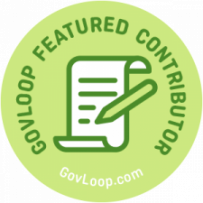 The world as we know it and the people in it have fundamentally changed since February 2020. People are remembering who they are and what they really care about.
The world as we know it and the people in it have fundamentally changed since February 2020. People are remembering who they are and what they really care about.
For those of us with children, being around our kids so much is reminding us how to play, explore and giggle, and how quickly our time with them seems to pass by. For those of us who work from home, we’re reminded of the natural rhythms of a day, week and season, and of the archaism of the eight-hour workday, a triumph when first guaranteed for government workers more than 150 years ago by President Ulysses S. Grant, but increasingly out of touch with our understanding of what it takes to be excellent at work.
Spending so much time in relative isolation and small groups has led to increased self-awareness about the need for self-care and, depending on who we’ve been living or working with, our need for higher quality, mutually supportive relationships.
Workplace Disrupted
Organizations are at an inflection point, with 54% of Generation Z workers and 41% of the entire global workforce contemplating leaving their employer this year. Extreme flexibility and hybrid work will define the post-pandemic workplace, claims Microsoft in their 2021 Work Trend Index. More than 70% of workers want flexible remote work options to continue. A Prudential American Worker Survey reported that 42% of employees would quit if their company didn’t offer remote working options long term.
In Washington D.C. last month, many of us followed along with interest as dozens of Washingtonian staff members went on a day-long publishing strike after their CEO wrote an op-ed about the perils of remote work originally titled: “As a CEO, I want my employees to understand the risks of not returning to work in the office.”
On the opposite extreme, Brent Hyder, President and Chief People Officer of Salesforce, shared the company’s trailblazing new policy earlier this year: “An immersive workspace is no longer limited to a desk in our Towers; the 9-to-5 workday is dead; and the employee experience is about more than ping-pong tables and snacks.”
From Disorder to Breakthrough
For some of us, this workplace disruption is long overdue. We’ve spent a great deal of time imagining a world where human wholeness and performance are supported rather than neglected at work. For others, this disruption is incredibly intimidating and a cause for alarm. It can be challenging to imagine a different future when all we know is what we’ve experienced in this country our entire lives.
How can we best support ourselves in navigating change at work this year? And how might we do this in more traditional, complex and hierarchical workplaces like the federal government?
What we do when we are uncertain, confused, afraid or unsettled is the key to our breakthrough – as people and as organizations. To position ourselves to thrive this year, no matter what comes our way, we can practice showing up every day with responsibility, curiosity and honesty.
Responsibility or Blame? To blame is human. Researchers have found that when people observe an action or outcome, they tend to attribute its cause to an actor’s internal or dispositional traits, even in the face of overwhelming evidence to the contrary. But our tendency to blame comes at a high cost: our own agency. In order to live a happy, peaceful and empowered life, you must take the reins where you can. Begin by catching yourself in the act of blaming. Notice, and practice asking yourself – “What’s mine to do here?”
Curiosity or Judgment? Sometimes called the inner critic or the inner judge, all of us have an inner voice that is perpetually evaluating us, criticizing us, telling us what kind of person we should be and comparing us to others. See if you can begin to notice this voice. Make a note of what it’s saying, without needing to change anything. Dig a little deeper to its roots. Practice lessening the influence of the inner critic by replacing its judgment with curiosity.
Honesty or Ignoring/Exaggerating? Neuroscientists, psychologists and physicians have been teaching us that humans ignore or exaggerate our internal signals (emotions and sensations) all the time. Without proper attunement to the messages from our inner world, we are tossing and turning in unconscious winds. We have trouble comprehending and adapting to our outer circumstances. To support yourself, begin by being 100% honest about your signals, and sitting with their truth until you figure out what to do about them.
As you practice the strategies above, you will gain greater access to your inner wisdom, the compassionate self-leadership that will guide you through the changes in the year ahead. What kind of world do you wish to see? Be the change and you just might see your vision turn into reality.
Interested in becoming a Featured Contributor? Email topics you’re interested in covering for GovLoop to [email protected]. And to read more from our Spring 2021 Cohort, here is a full list of every Featured Contributor during this cohort.
Jill L. Barrett, PCC, is Chief Executive Officer of Evolve, a Washington, D.C.-based coaching and organizational development firm she founded in 2015. Named a top innovator who is shaping the region’s future by “Washington Life Magazine,” Jill is a sought-after coach, speaker and consultant. She has coached executives and emerging leaders at a wide range of organizations including Google, WarnerMedia, D.C. Public Schools, Salesforce, Merrill Lynch, Ball Corporation and other regional, national and multinational organizations. Jill holds an Integral Coach® credential from world-class coaching school New Ventures West and a Professional Certified Coach credential from the International Coach Federation.





This is incredibly timely, thank you for sharing!
Love this line: “What we do when we are uncertain, confused, afraid or unsettled is the key to our breakthrough – as people and as organizations.”